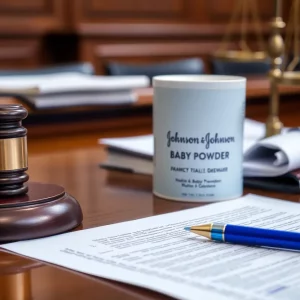Hope Amid Challenges: Rhys Shaw’s Battle and the Progress Against Childhood Cancer in Charleston
Charleston, SC – It’s a mixed bag of sunshine and possible rain as we head into the week, with highs around 87°F and a gentle breeze blowing from the south. It’s perfect weather for outdoor activities, especially tennis lessons, just as young Rhys Shaw enjoys on the picturesque Daniel Island. Rhys, a spirited 14-year-old, has been making strides not just on the court, but in life after facing a harrowing battle against cancer.
Back in July 2020, on a typical day at the pool, Rhys innocently posted a sign on his door alerting his family to his minor symptoms which included a sore throat and headache. Little did he know that these symptoms were the beginning of a much tougher challenge ahead. Diagnosed with T-cell acute lymphoblastic lymphoma, Rhys began a difficult journey through chemotherapy, which brought unforeseen complications, including a stay in the intensive care unit.
Now, fast forward to September 2024, and Rhys is not just recovering; he’s thriving! After enduring more than two years of treatments and challenges, he continues to inspire those around him. His mother, Lisa Shaw, reflects on how Rhys has been affected by his battle. “He’s still feeling some of the effects of his cancer journey, but he’s shown such incredible resilience,” she shared.
Shining Progress in Childhood Cancer Survival Rates
Remarkably, Rhys is part of a broader narrative of improvement when it comes to childhood cancer treatment. A recent report from the South Carolina Childhood Cancer Taskforce celebrates a 25-year effort that has led to an increase in the survival rate of childhood cancer by 11 percent and a decrease in the death rate by 21 percent since 1996. “It’s a huge step forward,” said Dr. Michelle Hudspeth, a pediatric oncologist who treated Rhys, highlighting how dedicated clinicians have worked to ensure better access to care for all children.
However, there’s still much work to be done. Despite these advancements, disparities remain, with survival rates showing a gap between different racial groups—86 percent for White children versus 80 percent for Black children. But, thanks to ongoing research and targeted clinical trials, there’s hope. Doctors are working diligently to tailor treatments to underserved populations, leading to a more equitable healthcare landscape.
The Journey Doesn’t End Here
The fight goes on, especially in light of rising childhood cancer rates—which have soared by 11 percent in South Carolina between 2001 and 2020—primarily in leukemia and lymphoma cases like Rhys’. Nonetheless, it comes with the caveat that childhood cancer is still relatively rare compared to adult cancer, only receiving 4 percent of federal research funding. Thus, pushing for more investments is crucial to enhance treatments and provide better therapies specifically designed for children.
Rhys’ story exemplifies the need for comprehensive care that doesn’t just extend to physical healing but also considers the long-term effects of treatments on young survivors. Many childhood cancer survivors face lingering health issues, thereby necessitating quality support as they transition into adulthood, especially as they age out of pediatric care.
Facing the Future with Determination
As Rhys continues to recover, he is reclaiming his teenage life. After having to put his dreams of playing football on hold, he has found new joy on the volleyball court and during tennis lessons. With friends and family rallying around him, Rhys’s community support has been nothing short of heartwarming. Celebratory outings after significant milestones brought not just relief but reminders of hope for many families navigating the stormy seas of childhood cancer.
As Rhys approaches his third-year milestone post-diagnosis, the anticipation of ringing the bell to mark his cancer-free status brings both excitement and hope. “You can finally see him blossoming and getting back to feeling like a normal kid again,” Lisa said, full of pride.
In summary, the story of Rhys Shaw is a tribute to resilience and hope in the Charleston community. It’s a reminder that while progress is being made in the fight against childhood cancer, the journey is ongoing. Continued commitment to research and equitable access to care will be essential in ensuring that more children not only survive cancer but thrive beyond it.



























